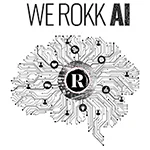 Peter Prodromou |
Over the past four decades, technological progress has redefined the modern world, changing how we live, work, meet, play, even love. It has brought billions of people into the middle class, created an infrastructure for health, commerce and education in some of the most remote parts of the globe. It was guided by a utopian libertarianism that believed only the best ideas would rise to the surface. Despite the massive good done by these innovations, this viewpoint also left blind spots and neglected to confront or plan for the side effects of such a massive revolution. And now, we’ve begun to see the world so wholly transformed begin to push back, its cultural and civic cornerstones unable to keep pace with such rapid technological progress.
Today, we’re seeing an unprecedented consumption of information over the Internet. Almost 90 percent of America has access to the Internet, and one out of every two individuals worldwide has Internet access as well. Internet and mobile penetration rates continue to grow each year. Google easily leads Internet searches with more than 80 percent of the market.
|
|
Technology companies like Google, Facebook, Amazon, Microsoft, Tencent, Apple and Alibaba now dominate the landscape, and Google, Facebook, Amazon and Apple have all continued to grow in revenues and net income and have outpaced the S&P 500. The combined revenue of these firms exceeds the GDP of 88 percent of countries worldwide, according to 2016 GDP estimates from StatisticsTimes.com. These companies are transforming the economy and industries. Traditional bricks and mortar retail risk finding themselves uncompetitive.
The growing influence of social media
More than two-thirds of U.S. adults get their news from social media. Facebook and YouTube dominate social media with 66 percent of adults using Facebook and 58 percent using YouTube. A stunning percentage of adults, 45 percent, get their largely disintermediated news from Facebook and 18 percent from YouTube, according to Pew Research Center’s News Use Across Social Media Platforms 2017 survey.
Disintermediation is making traditional media irrelevant and is taking newspapers down. No one is checking to ensure the accuracy of the news. The telephone is being used to manage and materially affect the outcome of elections.
In the old days, the news and news analysis was comprehensive. There were four networks you could trust. Today, cynical institutions are creating disfavor of others to lessen their influence. The 24/7 news cycle waters down our ability to judge the veracity of what we read, see and hear. And there’s an increasing lack of trust in traditional touchstones — media, government, industry associations and academia — characterized as fake news as a result of a proliferation of the same. Fox News demonstrated its ability to move voter percentages to the right and the left. Our President deploys Twitter today to communicate directly to his constituencies and to set the news agenda.
Across the globe, we’ve seen large numbers of people feeling alienated from a culture that they believe is moving too fast, where truth is no longer concrete due to the proliferation of fake news, where mass amounts of generated wealth have made inequality easier to see. And in response to all of this, we’ve seen the rise of reactionary movements on the right and on the left, all too willing to place these technology companies in the crosshairs of legislation, regulation and negative popular sentiment. Google was fined earlier this year a record $2.7 billion in an E.U Anti-trust ruling; and the U.S. Senate Intelligence Committee is currently summoning Facebook about the prospect of the Russian use of Facebook to influence the U.S. presidential election.
Responding to the challenge
To continue to thrive, the technology industry must first be ethical as an industry. It must chart a path forward that demonstrates an awareness of the impact of the products and services it sells on the individuals and communities that rely on them. Other agenda for technology companies includes:
Embrace the idea of long-term civic good. It must embrace the idea that fostering a long-term civic good is better for the company than generating short-term profits.
Get outside the bubble. Leading technology companies must demonstrate willingness to engage openly with experts outside of technology — policymakers, sociologists, economists — who can deliver guidance that goes beyond the Silicon Valley bubble.
Build a commitment to self-governance. They must also build an industry-wide commitment to self-governance centered on global socio-economic stability and smart innovation.
For media companies, it’s time for these firms to take a stand on what modern media is and define their roles and responsibilities in it. They have an opportunity to establish fact-based dialogues that challenge the current status quo and misinformation they have been helping to peddle. They can also highlight the opportunity this transformative industry is creating with new businesses and new good paying jobs, inspiring innovation and boosting entrepreneurship. Finally, they can take an active role in restoring faith in U.S. institutions, by taking an activist role in community-based approaches and managing themselves as media companies. An agenda for these companies includes:
Intermediated newsrooms. Content- laden media companies like Facebook and Google should consider putting intermediated newsrooms in place to help assure the accuracy of news and begin to restore confidence in the medium.
Shared connection campaigns. Online shared connection campaigns led by these companies could connect users and drive conversations around political, economic, moral leadership, innovation and other important issues of the day.
Public trust consortia. This initiative would lay the foundation for developing a consortium of major technology firms to address the issues of public trust, media curation, and the integrity of online news. The consortium could highlight the responsible role these media firms are trying to play and serve as a think tank for policies that increases Facebook’s standing, and as a hub for third-party coordination on matters of public policy.
Community roundtables. These companies could use their convening authority to also engage users at the local level with community roundtables engaging on important issues of the day. Forum topics could include the skills gap, unemployment in towns abandoned by traditional manufacturing, or finding ways to spread technological innovation to businesses, and social entrepreneurs, etc.
Responsible journalism. These companies should publish manifestos on the future of responsible journalism, and build relationships with leading journalism schools as a means to build strong journalist talent capabilities and practices.
The alternative is to face onerous regulations, limits on the pace of innovation, loss of revenue and public demonization.
Finally, for communications firms, this is an issue of business strategy as well as communications. Smart companies will:
• Seize this moment to realign and act as business strategist as well as a communications expert.
• Demonstrate consistency and fairness in all communications and insist their teams have thoughtful engagement approaches.
• Embed social responsibility in the DNA of their clients’ organizational structures and systems, and be in complete alignment with the client’s business and engagement strategies. They will help their clients create programs, coalitions and platforms that show that their clients are aware, they are responsible and they are active. They will develop effective, highly integrated campaigns that effectively position their clients as leaders in this movement.
• Develop and position their clients’ thought leaders in issue areas of interest, and orchestrate events which bring industry allies, academics, policymakers, activists and more to the table for a robust discussion of the role technology companies and they play in society.
• Highlight the good their clients are doing but help them avoid pitfalls too (e.g., decisions that make short-term business sense, but do long-term reputational harm).
• Create strategies that engage their clients directly with the social and civic implications of innovation. They will provide crisis management strategy designed to mitigate any unintended consequences along the way.
***
Peter Prodromou is CEO of Racepoint Global.



 Laura Anderson, who rose to VP/GM of global communications and events in a nearly 20 year stint at Intel, will take on the Americas technology chair at Burson following the completion of the BCW and H+K merger on July 1.
Laura Anderson, who rose to VP/GM of global communications and events in a nearly 20 year stint at Intel, will take on the Americas technology chair at Burson following the completion of the BCW and H+K merger on July 1. WE Communications has partnered with ROKK Solutions to form the WE ROKK AI service.
WE Communications has partnered with ROKK Solutions to form the WE ROKK AI service. In the dynamic world of modern business, effective communication is a pivotal tool for success across various industries. At Communications Strategy Group (CSG®), our expertise in embracing innovation in communication extends beyond traditional marketing strategies, paving the way for transformative industry-specific solutions.
In the dynamic world of modern business, effective communication is a pivotal tool for success across various industries. At Communications Strategy Group (CSG®), our expertise in embracing innovation in communication extends beyond traditional marketing strategies, paving the way for transformative industry-specific solutions. There are two types of tech PR professionals. Which one are you? And are C-suite executives making that decision for you?
There are two types of tech PR professionals. Which one are you? And are C-suite executives making that decision for you? While there’s an impulse to grab reporters’ attention with the newest industry-transforming tech product or service, a back-to-basics approach focused on telling the right stories to the right people is a far more successful way to ensure your technology campaign breaks through the clutter of today’s crowded tech landscape.
While there’s an impulse to grab reporters’ attention with the newest industry-transforming tech product or service, a back-to-basics approach focused on telling the right stories to the right people is a far more successful way to ensure your technology campaign breaks through the clutter of today’s crowded tech landscape.


 Have a comment? Send it to
Have a comment? Send it to 
No comments have been submitted for this story yet.